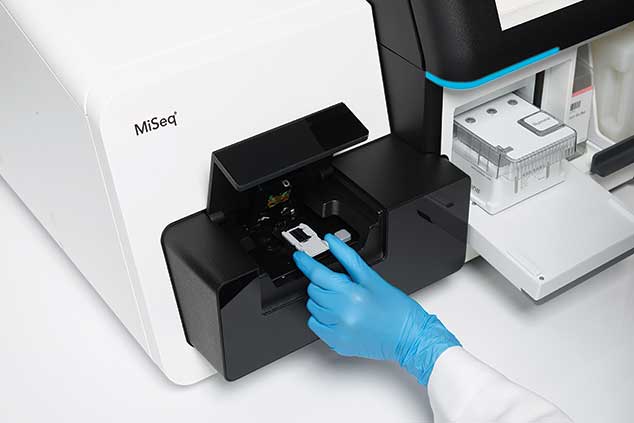
The science of who we are and how we got here has advanced in leaps and bounds in recent years. Take genome sequencing, the process of identifying the order of genetic ‘letters’ in an organism’s DNA, or genetic code; ‘reading’ the genetic structure, essentially.
The whole human genome consists of three billion of these letters. It cost about $3bn and took 13 years for the very first decoding of a human genome to be completed in 2003. But today high-tech machines supplied by Illumina (Nasdaq: ILMN) do the same job for less than $1,000 in mere days.
An exciting field
Illumina’s sequencing technologies are central to progress in areas including oncology, pre-natal testing, genetic disease, microbial genomics, personalised medicine, drug development and agriculture.
For instance, plant and animal genomics speeds up the improvement of crops and farm animals originally carried out by selective breeding. Genome sequencing has identified many genetic markers in farm animals that are associated with desirable traits such as resistance to a particular disease. This facilitates breeding animals with this particular trait but without reductions in other desirable qualities.
Meanwhile, early detection of cancer can increase the chances of survival by a factor of ten. Since some tumour cell DNA (which is subtly different from normal cell DNA) circulates in the blood, sequencing of DNA collected from the blood can identify the presence of tumour cells.
Illumina, then, provides essential diagnostic and research tools for the growing life science and biotechnology sector. It is the clear global leader in genome sequencing, with around 75% of the overall market, a figure that continues to grow. More than 90% of sequenced genetic material is likely to have passed through an Illumina machine and there are 13,000 Illumina systems in active use globally.
Fund platform and research group Morningstar estimates that the genome sequencing market can grow to over $20bn, compared with Illumina’s 2018 sales of $3.33bn. An important source of recurring revenue comes from the high-margin disposable products or equipment (such as reagents for testing that require replacing) that customers need to use with their sequencing systems. Usage increases both with the installed base and with increased machine use. Other services include training, servicing and consulting.
Protected from competition
Illumina is well placed to fend off competition. Its massive investment in research and development (R&D), worth 18.7% of sales or $623m last year, a very large percentage for a health equipment company, is helping it grow its huge market share. R&D has produced 800 patents, putting Ilumina into the world’s top 300 R&D investors. Continual innovation is pushing down sequencing time and costs.
Then there are regulatory hurdles for potential competitors, with Illumina’s MiSeq platform the only genome sequencing instrument approved by America’s Food and Drug Administration (FDA). The FDA is likely to want to add further regulations for sequencing in the clinical diagnostic market, entrenching Illumina’s advantage.
For example, Illumina is likely to fund clinical trials to prove its instruments’ worth for cancer screening tests. If these result in FDA approval, this will provide further barriers to entry for competitors. Cancer screening is a high-growth area since selection of the best treatment from the many new generation immuno-oncology drugs requires genetic profiles of tumours and patients.
Share price dip is a buying opportunity
Illumina’s fourth-quarter and full year 2018 results were released on 29 January. Turnover was up 21% on 2017, with operating profit up 35% and earnings-per-share (EPS) up 43%. Margins have been increasing steadily, while revenue rose by 134.5% between 2013 and 2018. Opertating earnings have risen by around 250% in the same timeframe.
Illumina’s technological lead is maintained both by its exceptionally high investment in R&D (18.7% of sales compared with Samsung’s 7.2% or Google-parent Alphabet’s 14.5%) and by bolt-on acquisitions.
In the past year Illumina has acquired Pacific Biosciences, a sequencing company, for $1.2bn and Edico Genome, a start-up data analysis company, for $100m. It has also partnered with Loxo Oncology on cancer diagnostics for solid tumours. Pacific Biosiences gives Illumina access to a specialised set of sequencing applications expected to grow to a value of $2.5bn a year by 2022.
Illumina has a strong balance sheet, a record of profitability and a history of shrewd capital allocation. Its forward price/earnings (p/e) ratio for 2019 is 39.5, high but a reflection of the impressive growth opportunities in the years ahead.
Growth expectations are based on the way genomic sequencing is creating new research applications and moving into many existing clinical diagnostic markets.
The shares, up 76% in the past five years, dipped after the 2018 results because of cautious guidance of 13%-14% revenue increase in 2019. They are down 19% from last September’s peak – a buying opportunity.